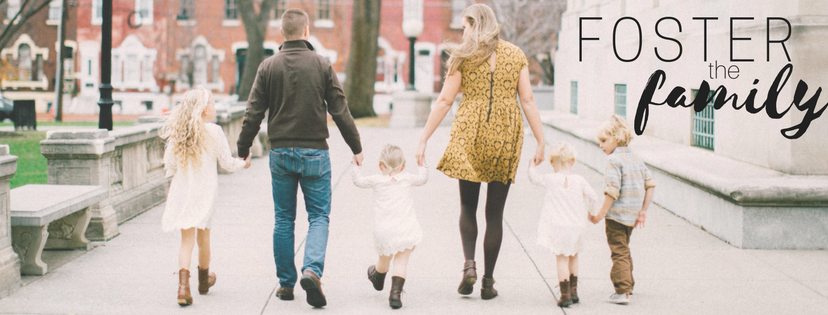The “what about my kids” question is important, though, because it must be answered. We have to wrestle and conclude—not that foster care is “worth it” despite the effects on our forever kids—but that, ultimately, we trust God for our forever kids.
Our Kids Need So Much
The thing my kids need the very most is the thing I’m least able to provide. They need to be saved. I can trick myself into thinking I can manufacture these other, smaller changes. But I’m well aware that I can’t change my kids’ hearts, can’t transform their lives, can’t redeem their souls.
A Forgiven Mom
I’m not sure what kind of mom I am. But, before and above everything else, I know I’m a forgiven mom.
Sharing Our Calmness
And I felt it. That I don’t need to try to muster the strength to carry them all through this. That—actually—together, as a family, we’ll carry each other.
Strong as a (Foster) Mother
Nothing has made me feel weaker than this foster mom life. But I've found great strength in embracing weakness. I'm as strong as a (foster) mother.
#SHARE THE MIC: SHERRIE ELDRIDGE • Four Things Adoptive Moms Can Do In the Midst of Adoptee Strain
I arched my back and cried bloody murder. I was communicating my cry print--”My mama is gone. I can’t live without her.” And, Retha, entertained a strange idea: “I am not enough to meet the needs of my child.” There was an unnamed strain in my relationship with Retha…
Closure
I can now accept the reality of a “successful” ending to his placement in our family. One that ended in reunification. One that ended in my own heartbreak. One that’s evolved, eventually, into a family (theirs) healed and a heart (mine) healed.
Dear friends & family
We love our children hard, and we are doing our very best. If you have questions, ask. If you’re confused, spend some time & learn. If you’re concerned, pray & love & be there for us. Our children need you, we need you.
Give up Control
When we relinquish control, it’s not to a broken system, not to a flawed decision maker. We relinquish control to God.
If I Perish, I Perish
If something is worth it—if the people involved are worth it, the God we serve is worth it—then we face it straight on and speak in faith and surrender.
Foster Care is about Family
Foster care is about family. It’s about welcoming a child into your family. It’s about—in one way or another—welcoming another family into your family.
A Call to Foster
Not everyone is called to be a foster parent. Not everyone’s supposed to adopt. But there may be some who—if they spent more time leaning into the small and quiet “calls”—would realize there’s a calling.
Rejecting the Either + the Or and Choosing Both
When did we start believing that being for one means being against the other? I reject the either and the or. I choose both.
Loving Broken People
I believe that part of this job is fostering the whole family, and I’m committed to doing it, even when it’s hard.
Trauma Training Isn't Enough
Sometimes I can’t handle the hour long meltdowns or the what’s-even-going-on-here trauma behaviors. So I hold it together and say the right things and make everyone alright. And then I hit my breaking point.
I Get Too Attached
It has to be the reasoning I hear most often from would-be foster parents: “I could never do that. I would get too attached.” Well, that makes two of us. Attachment is the whole point of this, after all.
Mother's Day for the (Foster + Adoptive) Mothers
To the woman who has stepped into a child’s life and story and heart. Who has decided to love, when she had no reason to have to. Who has adopted the role of mother, for a short time or forever...
Back + Forth Journal: Building a Relationship with Biological Parents
One of the most helpful tools I’ve found to build a relationship with my foster children’s biological parents is a back and forth journal. It’s a pretty simple idea, but many people feel intimidated by the idea of communicating with biological parents and are searching for direction.
I Say No To Placements All The Time
As time has gone on, I’ve gotten more acquainted with--if still not totally comfortable with--saying no. I’ve learned that knowing when to say yes and when to say no is one of the most important parts of doing this thing well.
That Dirty Word: Respite Care
The whys of a family’s decision to place a child in respite care is endless, beyond a simple explanation, and no one else’s business.




















